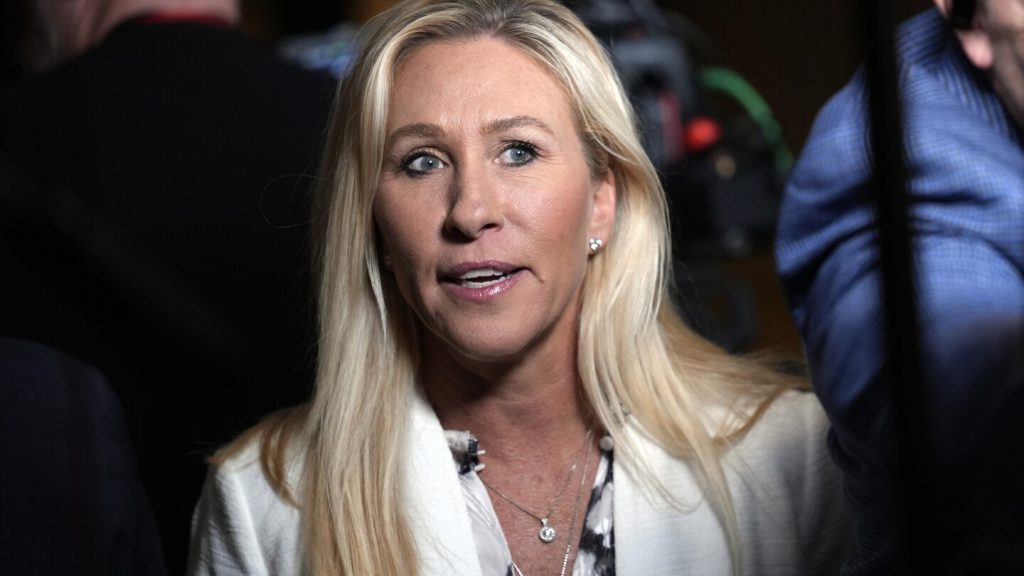Greene has accused House Speaker Mike Johnson of failing to uphold Republican values and compromising with Democrats on key legislation. She has threatened to push for a snap vote to remove him from office, which could leave the House in turmoil and hinder progress on pending bills, including aid to Ukraine. Greene’s criticism comes amid a broader Republican chaos in the House that has seen some lawmakers leave their positions, and threatens to stall important legislative priorities during a critical time in the political calendar.
Johnson, who took over as Speaker six months ago after the ousting of Kevin McCarthy, is facing backlash from Greene and other hard-right Republicans for his attempts to work with Democrats to pass crucial legislation. With a slim majority in the House, Johnson relies on bipartisan cooperation to advance bills, but this partnership has angered Greene and her supporters. The threat of a potential vote to remove Johnson has left the Republican majority in a precarious position, with uncertainty surrounding the outcome and the future of the party’s leadership.
The current standoff has the potential to impact the legislative agenda in Congress, as lawmakers typically focus on passing key priorities before turning their attention to the upcoming election campaigns. Johnson’s efforts to keep the government running and prevent a shutdown by compromising with Democrats have drawn criticism from Greene and other hard-right Republicans, who view his actions as a betrayal of Republican values. The ongoing power struggle in the House could lead to further gridlock and division within the party.
Despite the pushback from Greene and her allies, some Republicans have expressed reservations about removing Johnson as Speaker, fearing the repercussions of another leadership change. Democrats, led by Rep. Hakeem Jeffries, have signaled their willingness to support Johnson in order to maintain a functional House. The possibility of a bipartisan effort to keep Johnson in office highlights the challenges facing the Republican Party as it navigates internal divisions and external pressures. The outcome of the current standoff will have far-reaching implications for the future of the House and the broader political landscape.
In her letter to colleagues, Greene detailed her grievances against Johnson and criticized his leadership style, accusing him of capitulating to Democratic priorities at the expense of the Republican base. She highlighted instances where Johnson had failed to uphold promises made to the Republican Party, such as passing spending bills that included policies opposed by many Republicans. Greene’s rhetoric reflects the growing discontent within the GOP over the direction of the party and the role of its leadership in shaping legislative outcomes. The tension between hard-right Republicans and more moderate members underscores the divisions within the party and the challenges of governing in a polarized political environment.
As the House grapples with internal strife and external pressures, the future of Speaker Mike Johnson hangs in the balance. The threat of a snap vote to remove him from office has thrown the Republican majority into disarray, with uncertainty surrounding the potential outcome and the impact on legislative priorities. The ongoing power struggle between hard-right Republicans like Greene and more moderate members like Johnson highlights the broader divisions within the GOP and the challenges of governing in a polarized political climate. The upcoming weeks will be critical in determining the fate of Johnson and the direction of the House as it navigates a tumultuous political landscape.


